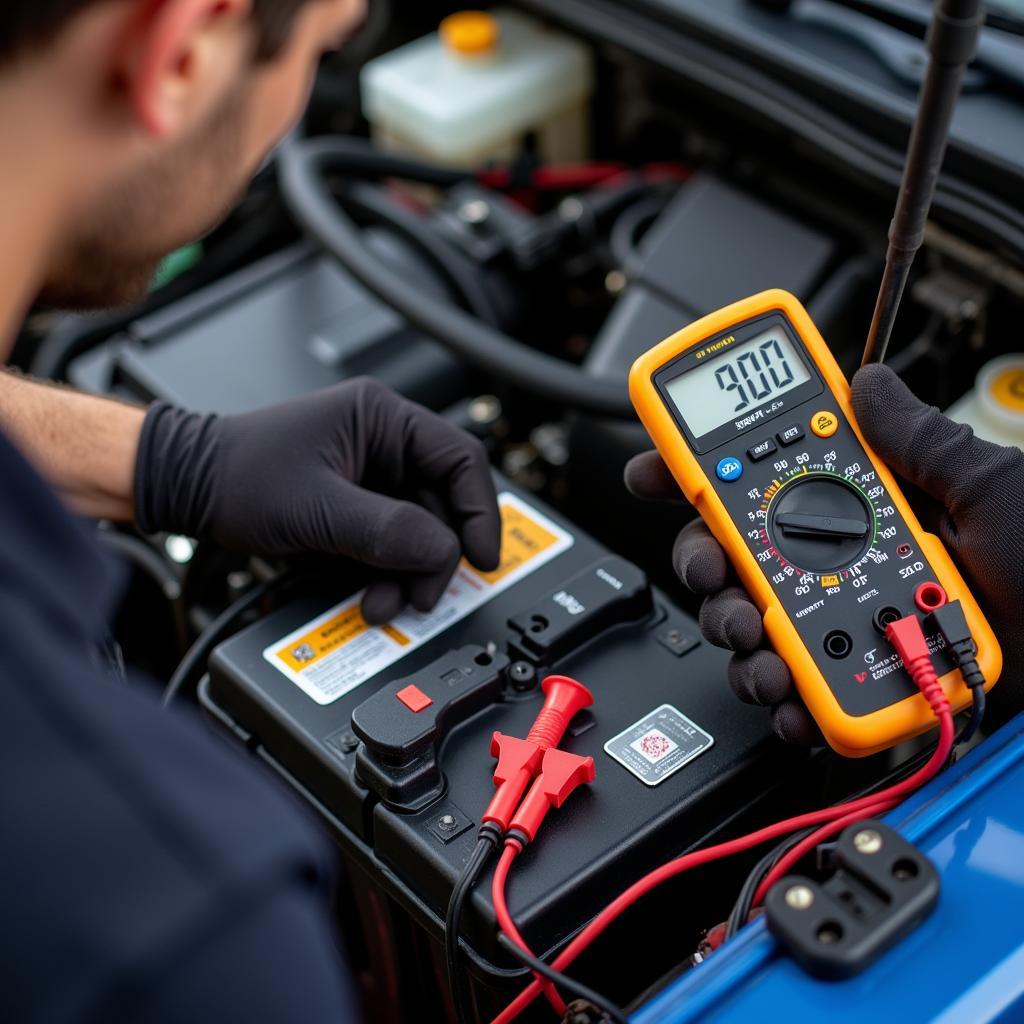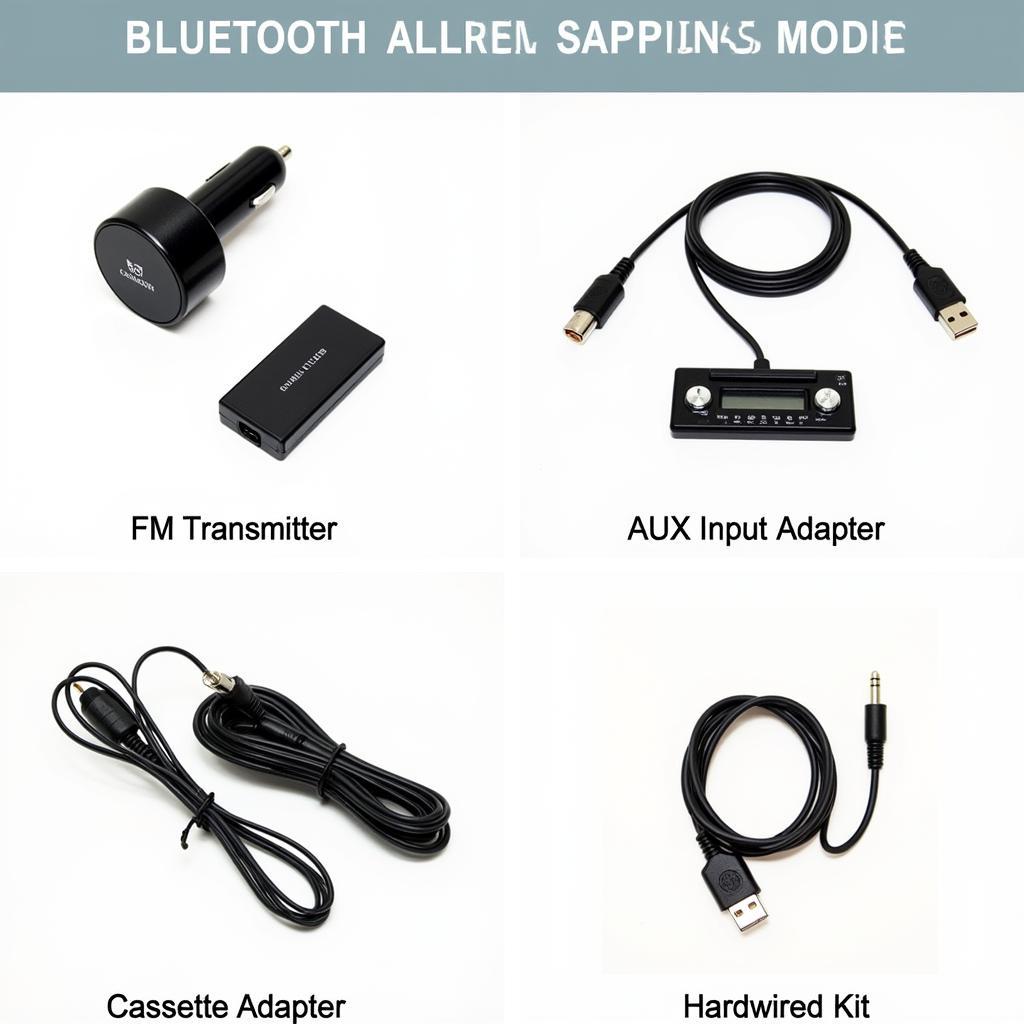A dead car battery can be a major inconvenience, leaving you stranded and frustrated. Recognizing the signs of a defective car battery can save you time, money, and a lot of hassle. This article will cover the common indicators of a failing battery, helping you diagnose the problem early and take appropriate action.
Common Signs Your Car Battery is Dying
Several symptoms can indicate your car battery is nearing its end. These range from subtle hints to obvious signs that something is amiss. Being aware of these signs of a defective car battery will empower you to address the issue proactively.
Slow Engine Crank
One of the earliest and most common signs of a defective car battery is a slow engine crank. When you turn the key, the engine cranks slowly and sluggishly before starting, or sometimes doesn’t start at all. This sluggishness indicates the battery is struggling to provide sufficient power to the starter motor.
Dim Headlights
Another tell-tale sign is dimming headlights, especially when the engine is idling. If your headlights appear significantly dimmer than usual, particularly at low RPM, it could be a sign that your battery is failing and unable to maintain a consistent voltage.
Clicking Sound When Turning the Key
If you hear a rapid clicking sound when you turn the key, it often means the battery doesn’t have enough power to engage the starter solenoid. This clicking is the sound of the solenoid attempting to engage but failing due to low voltage.
Electrical Issues
A failing battery can also cause various electrical malfunctions. You might notice issues with the power windows, radio, interior lights, or other electrical components. These problems often arise because the battery is no longer able to provide enough power to all the systems in the car.
 Dim Headlights Indicate Car Battery Problems
Dim Headlights Indicate Car Battery Problems
Battery Warning Light
Most modern vehicles have a battery warning light on the dashboard. If this light illuminates, it signals a potential problem with the charging system, which could be related to the battery, alternator, or voltage regulator. Don’t ignore this warning; have your car inspected by a qualified technician as soon as possible. Like when your brand new battery keeps dying, you should check the charging system.
Swollen Battery Case
Visually inspect your battery for any signs of physical damage, such as cracks, leaks, or a swollen battery case. Extreme temperatures can cause the battery case to swell, indicating internal damage and a potential safety hazard. A swollen battery should be replaced immediately.
Old Age
Car batteries typically have a lifespan of 3 to 5 years. As a battery ages, its internal components degrade, reducing its ability to hold a charge. If your battery is approaching or exceeding this age range, it’s a good idea to have it tested and consider replacing it proactively. Similar to replacing a key fob battery, like the process for how do you change battery in ford key fob, preventative measures can save future headaches.
 Mechanic Checks Car Battery Voltage with Multimeter
Mechanic Checks Car Battery Voltage with Multimeter
How Do I Test My Car Battery?
You can test your car battery using a multimeter or have it tested at most auto parts stores. A multimeter will measure the voltage of the battery, indicating its state of charge. A voltage reading of 12.6 volts or higher typically indicates a healthy battery. A lower reading suggests a potential problem.
What Causes a Car Battery to Fail?
Several factors can contribute to car battery failure, including:
- Extreme temperatures: Both hot and cold weather can negatively impact battery performance and lifespan.
- Overcharging: A faulty alternator can overcharge the battery, causing damage.
- Parasitic drain: Electrical components drawing power even when the car is off can drain the battery.
- Old age: As mentioned earlier, batteries have a limited lifespan.
Conclusion
Recognizing the signs of a defective car battery is essential for maintaining your vehicle’s reliability. By understanding the common symptoms and taking proactive steps, you can avoid the inconvenience and frustration of a dead battery. If you experience any of the signs discussed above, have your car battery tested and consider replacement if necessary. Remember, just like understanding how to change battery bmw key fob, knowing the signs of a defective car battery is crucial for car ownership.
FAQ
- How long does a car battery last? Most car batteries last between 3 and 5 years.
- Can I jump-start a completely dead battery? While you can attempt to jump-start a completely dead battery, it might not always be successful. If the battery is severely damaged, it might not hold a charge.
- What should I do if my battery warning light comes on? Have your car inspected by a qualified technician as soon as possible.
- How can I prevent my car battery from dying? Avoid leaving lights or accessories on when the car is off, have your battery tested regularly, and consider replacing it proactively as it ages.
- Is it safe to drive with a failing battery? It is not recommended to drive with a failing battery as it could leave you stranded.
- Can a faulty alternator cause a car battery to die? Yes, a faulty alternator can overcharge or undercharge the battery, leading to premature failure.
- What are the signs of a bad alternator? Some signs include dimming headlights, flickering dashboard lights, and a whining noise coming from the engine. Just like instances when your c4 corvette battery drain is excessive or when your car battery charges fast and drains fast, a bad alternator can be the culprit.

